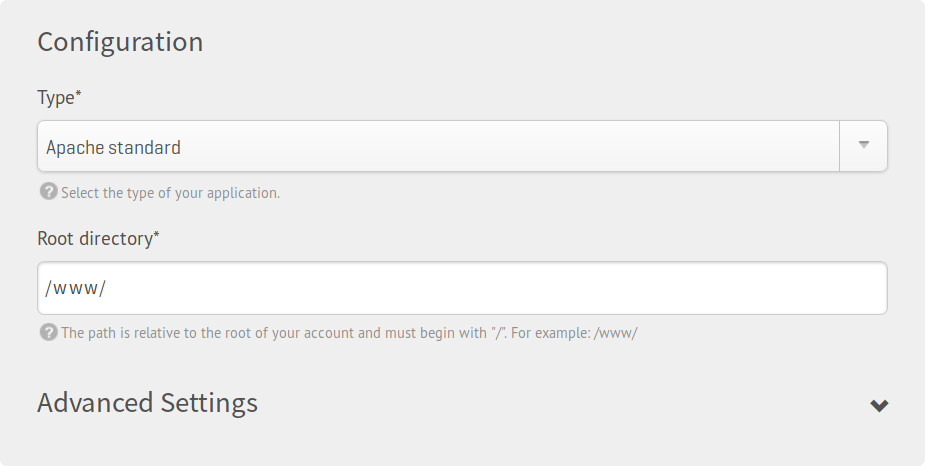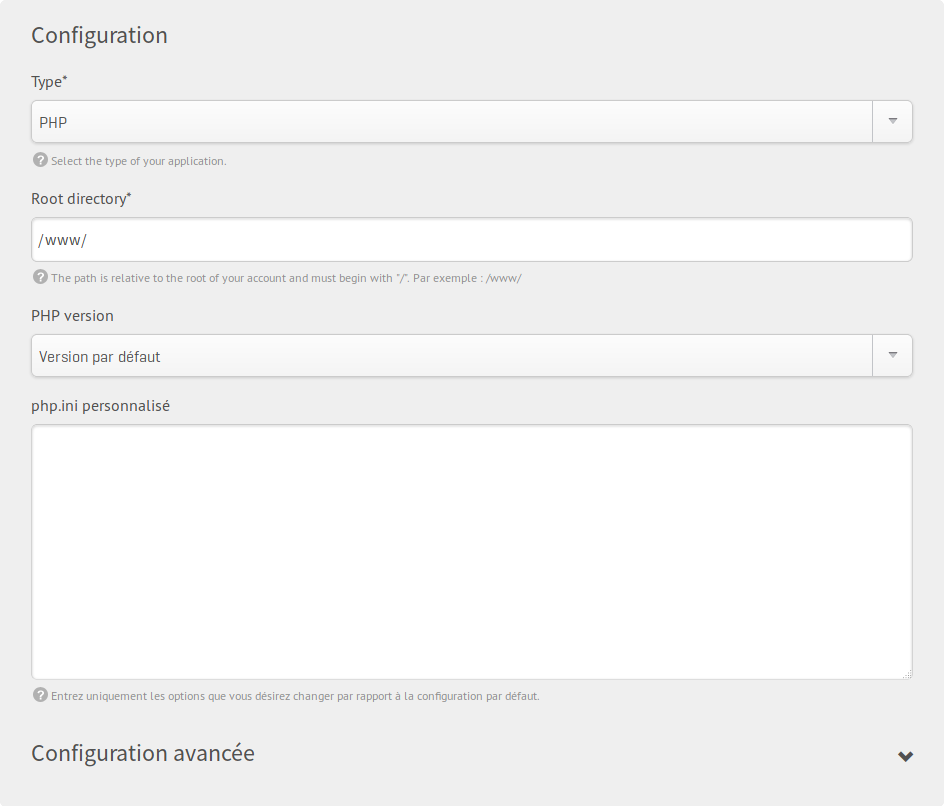February, 2018
12
Ten days ago, PHP made the two lastest bugfix releases available (PHP 7.1.14 and PHP 7.2.2). In response, we changed how you are able to configure your PHP websites in our alwaysdata hosting service. We are on the road towards simplicity.
Ruby, Python, Node.js… and PHP?
One of the core features of the alwaysdata service offer is the various technologies that you are given access to. From shared offers, hosting your apps remains easy and effortless. You have numerous choices of interpreters for languages such as Ruby, Python, Node.js, etc. and — of course — PHP.
This PHP choice is available under websites settings form as a Type: Apache standard.

From a technical point of view, an Apache instance serves PHP websites through the mod_fcgid module. Others interpreters (WSGI, Rails, or User program) use their own HTTP servers. Our supervisor alproxy executes and routes HTTP traffic to the relevant processes in front.
Technical implementation does not always produce good UX. In fact, often, it does not. It is counter-intuitive to mention Apache for PHP websites because the HTTP server is always in use. We have decided to be more consistent by upgrading the choices for your instance types. Now, your PHP websites and apps will have their own Type: PHP, only.

The bonus effect
More than a cosmetic update, this represents an actual structural improvement. Yet, with a Python, Ruby (or Rails), Node.js or Elixir websites, you will be able to choose which version to use for each one, individually. There is simply no reason for PHP to not follow the same pattern. Now, you will be able to customize, for each instance, which version of PHP to use, as well as its php.ini settings.
Of course, you can always define default settings for specific versions and php.ini in your Environment section. They are used globally when you do not choose to override them in your website settings.
This way, you are given even more flexibility. You will be able to host various instances of PHP websites and services with different versions and settings all under the same account. That is the kind of ease and versatility we want to offer you at alwaysdata.
A quick reminder about security. Please keep in mind that containers’ isolation is dependent on your account. The multi-accounts remains the only possible solution option if you want to split your websites or services to keep them isolated from one another. If one of your websites should be compromised, others services running under the same account — with the same user — might be exposed, too. Be careful to not decrease your security cursor too much by gathering all of your sites under the same account.
About API
If you use our API, some changes will occur:
- creating an Apache standard website capability is deprecated but still works. It will create a PHP website with defaults settings from your environment. However, please remember to update your scripts.
- listing websites or getting a resource will give you now a PHP type rather than the Apache standard type. If you run a test on the returned type, please update your script to take this difference into account.
This new version will be put into production on Feb. 15th. This upgrade is transparent for all Apache standard websites. You have nothing that you need to do on your side. As usual, we take care of everything for you.
Static files or Redirect types continue to use an Apache instance also, and still work under their own types. Of course, if you need some finely-tuned instances, the Apache custom type will remain available to you.


no comments